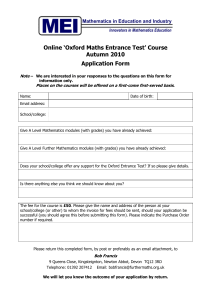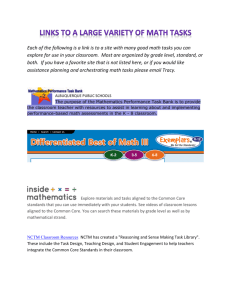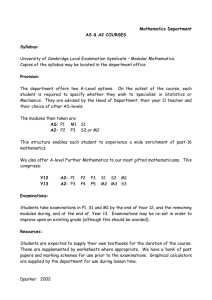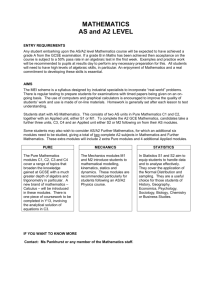GCE Maths (stats)
advertisement
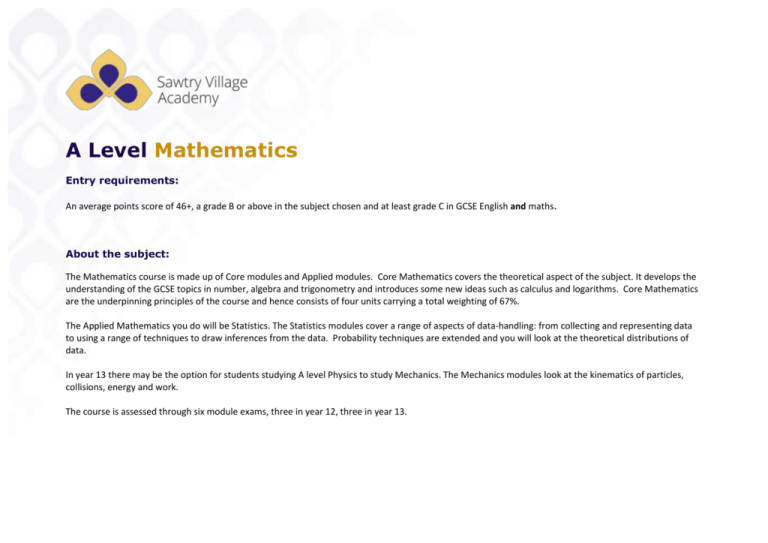
A Level Mathematics Entry requirements: An average points score of 46+, a grade B or above in the subject chosen and at least grade C in GCSE English and maths. About the subject: The Mathematics course is made up of Core modules and Applied modules. Core Mathematics covers the theoretical aspect of the subject. It develops the understanding of the GCSE topics in number, algebra and trigonometry and introduces some new ideas such as calculus and logarithms. Core Mathematics are the underpinning principles of the course and hence consists of four units carrying a total weighting of 67%. The Applied Mathematics you do will be Statistics. The Statistics modules cover a range of aspects of data-handling: from collecting and representing data to using a range of techniques to draw inferences from the data. Probability techniques are extended and you will look at the theoretical distributions of data. In year 13 there may be the option for students studying A level Physics to study Mechanics. The Mechanics modules look at the kinematics of particles, collisions, energy and work. The course is assessed through six module exams, three in year 12, three in year 13. Where does the subject lead? University courses: For any degree with a numerate component, A level mathematics is highly valued and for Engineering and Physics courses it is vital. For others, departments will often like to see additional qualifications which balance the skills developed in mathematics; for example, essay-writing and generic research skills are often better developed in other subjects, but the analytic and logical strengths of the A level mathematician are perceived to complement these well. Careers: Mathematics A level is universally highly regarded, and employers in a wide range of careers value the transferable, as well as specific, skills gained over the A level course. Fen Lane, Sawtry, Huntingdon, Cambridgeshire, PE28 5TQ 01487 830701 www.sawtryva.org


